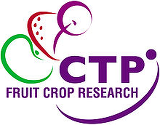REFERENCE: CTP_FCR_2021_7
Supervisors: Dr Helen Cockerton, Prof Timo Hytönen (NIAB EMR); Jim Dunwell (University of Reading)
This student will be registered with The University of Reading. Beginning in October 2021, the successful candidate should have (or expect to have) an Honours Degree (or equivalent) with a minimum of 2.1 in Plant Science, Plant Genetics, Biology, or other related science subjects.
Background
The use of “rapid evolution” individuals has the potential to accelerate the breeding and provide a valuable research tool to help narrow down the genetic regions controlling important agronomic traits. Successful generation of new varieties is currently restricted by the frequency of chromosomal crossovers. Typically, between one and three crossovers occur per chromosome. An increased number of crossovers would lead to the faster accumulation of desirable alleles into a single individual, whilst increasing the ability to remove undesirable alleles, thus minimizing linkage drag.
Objectives and approaches
This proposal consists of three research areas:
WP1 Identifying naturally occurring high-recombination individuals
Through the identification of naturally occurring individuals with elevated recombination rates we have the potential to generate material with-which we can speed up breeding efficacy. The profiling of crossover frequency, using existing strawberry and apple SNP population data, will allow the identification of naturally occurring lines with varying recombination rates. In WP1 we will profile recombination and identify high and low recombination regions, in addition to mapping the number and distribution of crossover events within populations. This information will be used to identify high crossover parental lines and ultimately assist in accelerating genetic improvement in crops.
WP2 CRISPR Generation of high-recombination apple and strawberry lines
From previous research we are aware of a conserved mechanism that controls recombination rate in plants, which will allow us to create high recombination individuals as a research tool to narrow down (fine-map) economically important traits. Natural variation identified the HEI10 ubiquitin E3 ligase as controlling recombination levels, and its overexpression has been associated with a doubling in crossover numbers in Arabidopsis. Transformation of similar HEI10 transgenes should allow an increase in crossovers in apple and strawberry to be achieved. Furthermore, unlocking the potential of DNA to form crossovers over the suppressed cold regions can be achieved through using CRISPR transformation to knockdown DNA methyltransferases or other factors that mediate silencing of crossovers.
WP3 Validation of high-recombination phenotypes in HEI10 transformants
Confirmation that the above HEI10 transformations have an increased crossover frequency will be achieved through profiling the progeny of transformants using KASP or SSLP markers, over the length of chromosomes. In particular, two chromosomes will be profiled: chromosome 6C in octoploid strawberry to fine map a disease resistance gene in strawberry, and chromosome 11 in apple to fine map the powdery mildew resistance gene pl2.
Training
The successful candidate will gain a wide range of experience in plant genetics and breeding, genomics, and biotechnology.
Application
Anyone interested should fill the online application form before the deadline of 8th February 2021. If need further help or clarification, please contact recruitmentctp@emr.ac.uk.
Contact Dr Helen Cockerton for an informal discussion on research contents.
